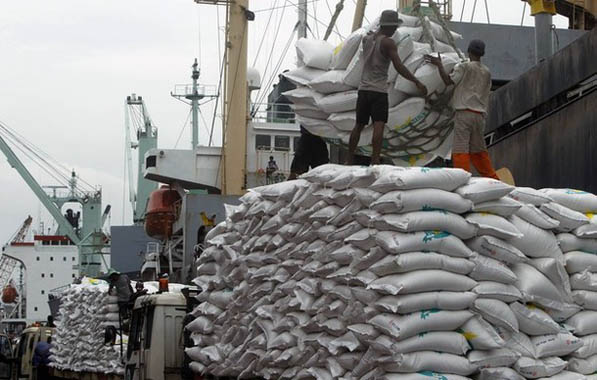In a significant move aimed at addressing Nigeria’s escalating food inflation, the Nigeria Customs Service (NCS) has announced that the suspension of duties on imported food items will commence once the Ministry of Finance provides the list of eligible beneficiaries. Abdullahi Maiwada, the spokesperson for NCS, revealed this during a joint press briefing of security agencies organized by the Strategic Communications Inter-Agency Policy Committee (SCIPC) in Abuja.
This development follows the federal government’s directive almost two months ago to suspend duties, tariffs, and taxes on essential food items like maize, brown rice, beans, millet, and wheat. The policy, designed to curb food inflation, was to be implemented from July 15 through December 31. However, the NCS has yet to fully roll out the program due to the delay in receiving the required list from the Ministry of Finance.
Suspension of Food Import Duties
On August 14, NCS initiated a partial implementation of the policy, allowing the importation of specific food staples. However, the full implementation is still on hold as the ministry has not provided a list of qualified importers who will benefit from the tax waiver. Maiwada stressed that the suspension of duties is a strategic measure to control inflation without compromising the long-term economic stability of the country.
Maiwada clarified that the policy is not an open invitation for individuals to import food items. “People think that anyone can just import rice, but that’s not the case,” he explained. “The policy has specific guidelines, and it is designed to ensure that short-term solutions to food inflation do not conflict with long-term economic objectives.”
He further elaborated that the guidelines issued by the Ministry of Finance set strict criteria for eligibility. “You must be a miller, a taxpayer, and have been in operation for a certain number of years. Additionally, there will be a quota system, which will ensure a regulated and fair distribution of the benefits,” he added. The customs service, according to Maiwada, is only responsible for implementing these policies once all necessary details are provided by the Ministry of Finance.
Revenue Collection and Anti-Smuggling Efforts
To the food import duty suspension, the NCS reported impressive revenue generation for August. The agency collected N277.5 billion in import duties and an additional N15.8 billion in excise duties. Maiwada noted that these figures reflect NCS’s commitment to optimizing revenue generation amidst Nigeria’s economic challenges.
He also highlighted NCS’s intensified efforts to combat smuggling under its “Operation Whirlwind” (OPWW). The operation, which targets the smuggling of petroleum products in border states, led to the interception of seven trucks of Premium Motor Spirit (PMS), the closure of 12 retail outlets, and the seizure of 466,000 liters of PMS, along with 23 vehicles.
In its fight against illegal trade, the NCS recorded 83 seizures across various commands. The operation has so far resulted in the prosecution of seven suspects, while three marketers have been fined by the Nigerian Midstream and Downstream Petroleum Regulatory Authority (NMDPRA). Sealed filling stations have been handed over for further investigation and action.
While the NCS remains poised to implement the suspension of food import duties, the delay from the Ministry of Finance continues to stall the full rollout of the policy. As Nigeria grapples with rising food inflation, the swift execution of this initiative is crucial to providing much-needed relief to consumers. Meanwhile, the customs service’s focus on revenue generation and anti-smuggling efforts demonstrates its broader commitment to stabilizing the nation’s economy during these turbulent times.
This policy, once fully operational, is expected to alleviate the burden on households affected by soaring food prices, while NCS’s vigilance against illegal trade reinforces its role in safeguarding Nigeria’s economic interests.




